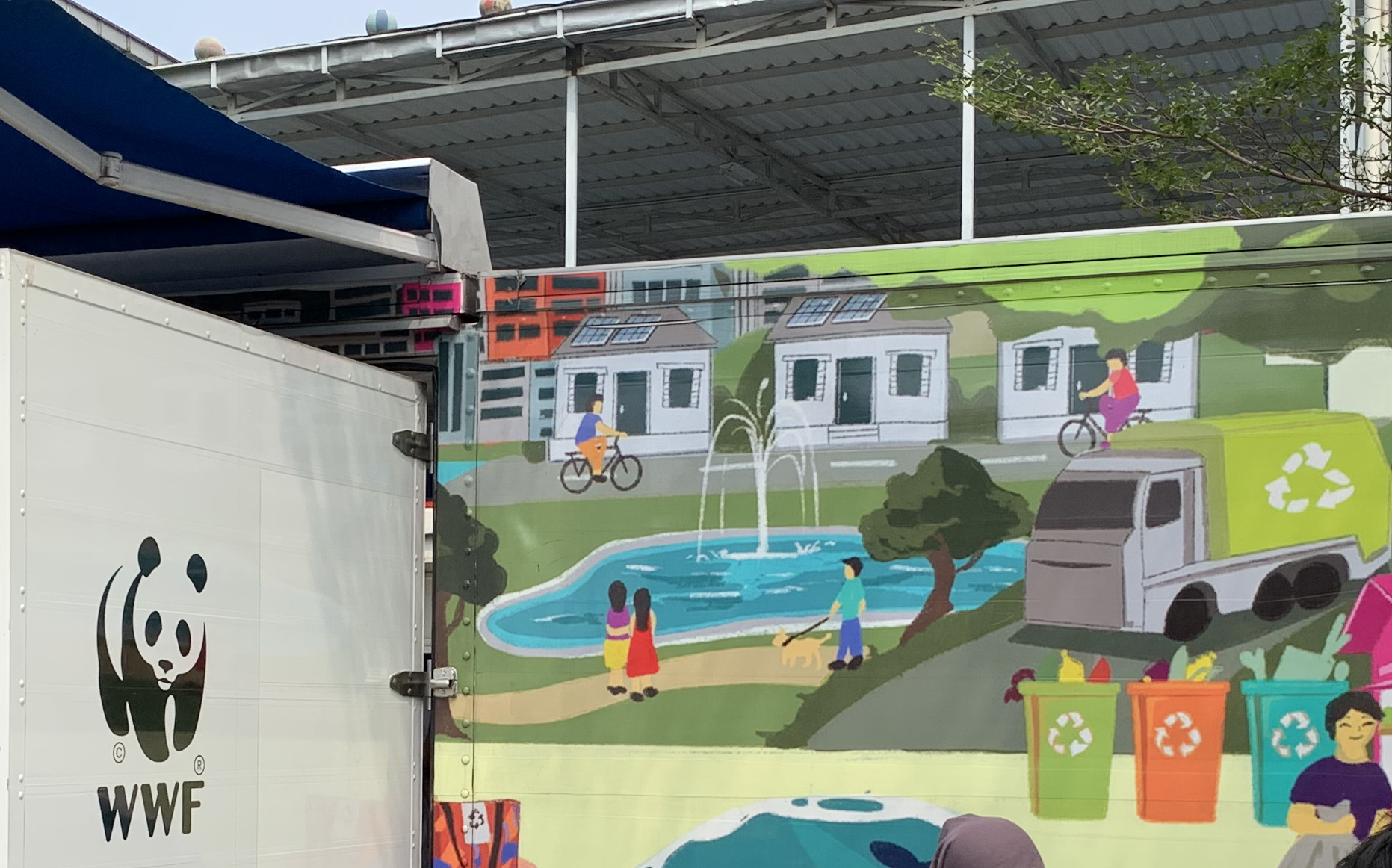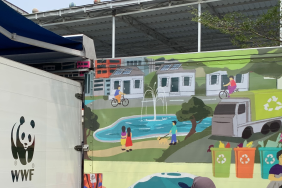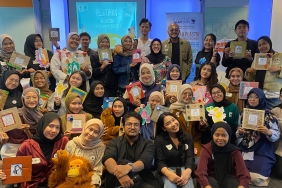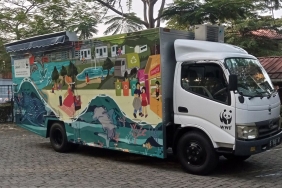TURNING TRASH INTO TRASH CANS
By: Dimas Prasetya Haryanto (Volunteer Panda Mobile) & Natalia Trita Agnika
We usually see people throwing plastic bottles into the trash can. However, in WWF-Indonesia's Panda Mobile activity last Friday (05/05), instead of being thrown into the trash can, the plastic bottles were turned into useful trash bins. The activity that took place at Semut-Semut Natural School Depok, West Java, was part of a series of Panda Mobile visits with the theme Earth Day.
In the 3R Post (Reduce, Reuse, Recycle), used plastic bottles that have been brought by the students are arranged in such a way that they become cubes. To prevent them from falling apart, the plastic bottles were tied with rope. The bottom was covered with cardboard that had been coated with plastic. The bins created by the students and volunteers Panda Mobile can be placed outside the classroom and used to collect wet waste.
At the same time, another group made a trash can made of used cardboard. They chose a hexagon shape to make it more attractive. The cardboard bins were later used to dispose of dry waste and placed in front of the classroom. Waste utilization activities are one way for the Panda Mobile team to instill a love and concern for the environment in children.
In addition to the 3R-themed activities (Reduce, Reuse, Recycle), WWF-Indonesia's Panda Mobile also presented storytelling delivered by Kak Ryan. The story was titled "The Lone Tree and Animal Friends". The students of grades 1-3 elementary school listened enthusiastically, especially when Kak Ryan brought out quite a lot of animal puppets accompanied by his favorite guitar.
The Panda Mobile volunteers also explained about WWF and the six umbrella animals that are the focus of WWF-Indonesia's conservation efforts. The six umbrella animals are the Javan Rhino, Orangutan, Sumatran Elephant, Sumatran Tiger, sea turtle and whale shark. To support the explanation from the Panda Mobile volunteers, the students were invited to watch the movies "Quartet of the Crossroads", "100% Renewable Energy", and "How Your T-Shirt Can Make a Difference".
The students' love for the environment was further supported with knowledge about water quality. Using the Panda Mobile water laboratory facility, they tested the water quality. The presence of microbes in the water was detected through a microscope, while the acidity of the water was tested using litmus paper.
The activity, which was attended by around 500 participants, was carried out with great joy. When all the activities were completed, the teachers expressed their excitement about the presence of WWF-Indonesia's Panda Mobile team. They think that the activities that have been carried out are very useful because they can provide lessons as well as experiences about the environment in a fun way.





